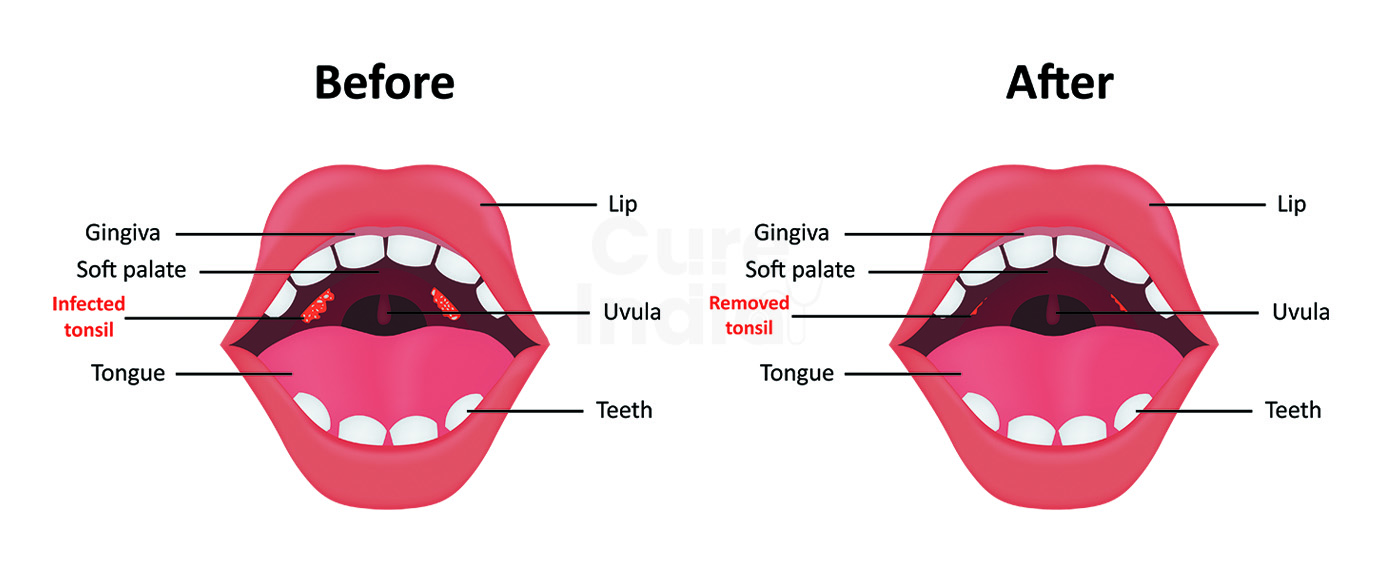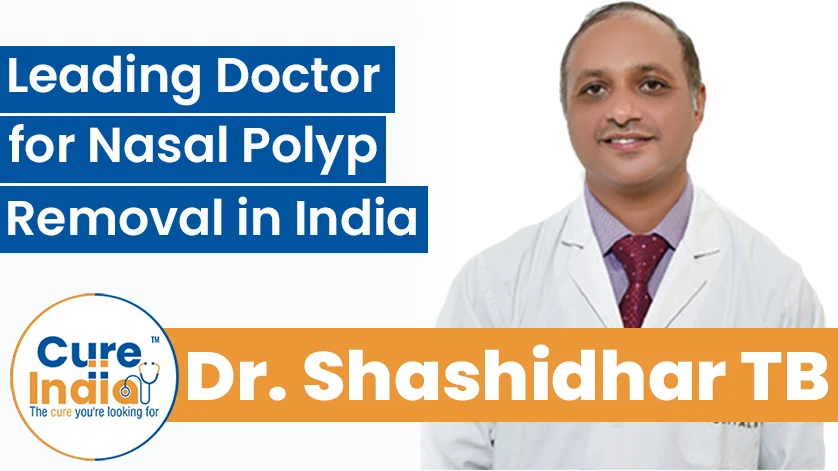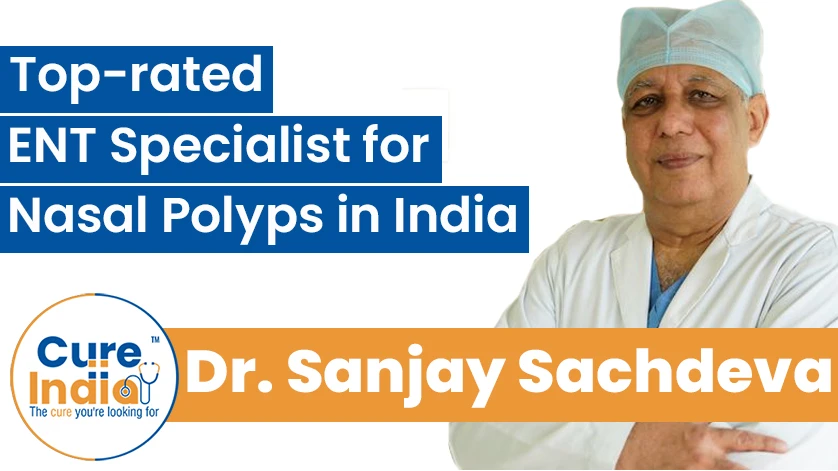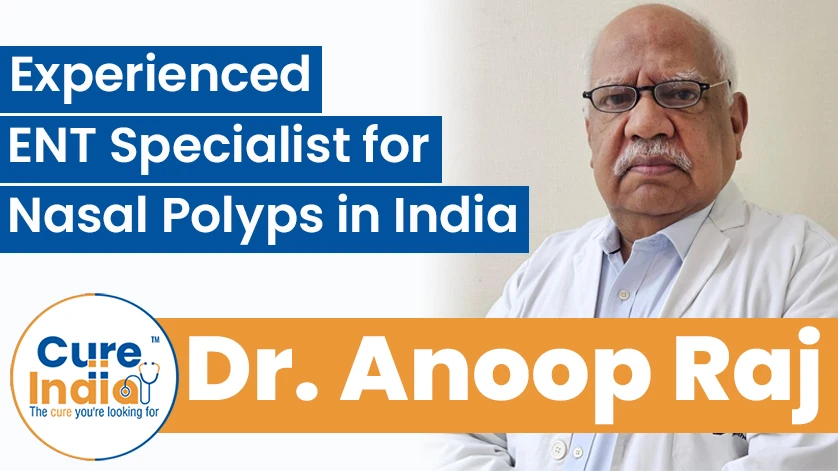

Nasal polyps are benign growths that may be seen along the lining of the nose. They do not cause any discomfort and are not malignant in any way. Patients with a history of allergies, asthma attacks, or recurring infections in the nasal passages are more likely to incur this condition. Nasal polyps may be treated with medication or surgery to reduce them and alleviate their symptoms.
Nasal polyps are noncancerous growths that cause no discomfort. It is in the nasal tubes and sinuses, particularly in the bone surrounding your nose, where they are located. A thin, squishy tissue covering these bodily components gives rise to mucous membranes. Swollen and inflamed nasal polyps may obstruct the sinuses and nasal passageways.
A polyp is a kind of tissue development typically appears as a little, flat bump or a short mushroom-like stem in the water. The majority of polyps have a diameter of less than a half-inch. While polyps in the uterus and colon are the most prevalent, other body parts, such as the cervix and ear canals, may also generate them.
A majority of polyps are noncancerous. Malignant tumours may develop from benign tumours because of the aberrant cell proliferation that causes them. A biopsy by your doctor may assist in establishing whether the growth you're seeing is a benign polyp. A little piece of tissue is removed and examined to see whether it contains any malignant cells.
An irritated nasal mucosa is an ideal environment for developing nasal polyp shape. Nasal mucosa acts as a humidifier and protective layer, keeping the inside of the nose and sinus cavities moist. Swollen, red, and sometimes filled with fluid, the nasal mucosa might result from infection or irritation. If the irritation is left untreated, the mucosa might grow into a polyp. A polyp is a tiny cyst-like development that may obstruct the nasal passages, making breathing difficult. Some individuals may acquire polyps even though they have never had an issue with their noses. However, there is usually a trigger for this. The following are examples of what sets off these reactions:
Polyps may be a genetic predisposition for certain individuals. Their mucosa may respond to inflammation differently because of their DNA.
Nasal polyps are a common symptom of long-term sinusitis. Nasal polyps are linked to long-term inflammation of the nasal cavity and sinus that occurs over 12 weeks after the onset of the polyps. Chronic sinusitis may occur without the presence of nasal polyps. If the polyps are little, you may not even know you possess them since they are soft and don't cause any discomfort. Many growths or a big polyp may block nasal and sinus airways.
■ Through Medicine - Nasal corticosteroid spray is often suggested by your doctor as the first line of therapy for nasal polyps. Nasal polyps may be reduced or removed for many individuals with this method. Oral corticosteroids are another option that might be employed. The discomfort, irritation, infections, or inflammation that initially caused the nasal polyps will most likely recur in the future for many people. Even though allergy symptoms may contribute to the formation of it, antihistamines and decongestants don't directly treat the polyps.
■ Through Surgery - Surgical removal of nasal polyps may be necessary if treatment fails to reduce or eliminate the polyps. The majority of the nasal polyps time, this operation is performed as an outpatient treatment. Eliminate the polyp obstructing the flow of nasal and sinus fluids, and you'll feel better in no time.
■ Nasal polyp surgery - If pharmacological therapy does not decrease or eradicate your sinuses and nasal polyps, you may need to be treated with endoscopic surgery. The sinuses and nasal polyps may be treated with endoscopic surgery as well. An endoscope, a thin, flexible tube with a light at one end and a camera at the other is inserted via the nostrils and guided into the sinus canals during endoscopic surgery. Polyps and other things that obstruct the passage of liquids from your sinuses may be removed with very few tools by the doctor.
Enlarged sinus apertures may also be a possibility after surgery. Outpatient endoscopic surgery is the norm and may typically be conducted without hospitalisation. Corticosteroid sprays are often used after surgery to protect against other polyps. After surgery, your surgeon may suggest rinsing with a saltwater solution.
If you’re searching for the best doctors for nasal polyp surgery in India, you’re automatically taking an important step toward better health and comfort. India is home to experienced ENT surgeons who use advanced techniques for safe treatment and high success rates. With CureIndia's network of top-rated doctors, choosing the right specialist becomes easy. Let's hear from some of our top doctors for nasal polyp surgery in India:
Dr. Shashidhar TB is a leading ENT and rhinology specialist in India. He is highly experienced in the diagnosis and surgical treatment of nasal polyps and is proficient in performing endoscopic sinus surgery, nasal airway correction, and management of chronic sinusitis.

Dr. Sanjay Sachdeva is a top ENT specialist in India who is known for his advanced expertise in nasal polyp removal, functional endoscopic sinus surgery, and chronic nasal inflammation management. His comprehensive treatments and modern endoscopic techniques have made him a trusted surgeon for patients suffering from nasal blockage and sinus problems.

Dr. Anoop Raj is an experienced ENT surgeon in India specialising in nasal polyp surgery, sinus disease management, and nasal obstruction treatments. He is known for his precise evaluation and effective treatments and offers comprehensive care for both simple and complex nasal polyp cases.

Dr. Amit Kumar Sharma is a top-rated ENT surgeon in India who is recognised for his expertise in minimally invasive nasal polyp removal, particularly through endoscopic and image-guided sinus surgery techniques. He focuses on providing effective and low downtime treatment options that enhance patient comfort and reduce polyp recurrence rates.

Nasal polyps might cause considerable discomfort. Infections of the sinuses are rather frequent. These infections may often recur and become persistent (chronic). Antibiotics may be prescribed if you have a bacterial infection. Occasionally, nasal polyps may lead to more serious diseases, such as pneumonia and sinusitis.
Your doctor monitors you to ensure you don't experience any of these issues. These problems may need antibiotics. Surgery is only required in the most extreme circumstances. Nasal polyps of a very big size may potentially obstruct your nasal canal while you sleep. Obstructive sleep apnea is the medical term for this. There's a chance that you'll wake up the following day feeling exhausted and sleepy due to this. If this is a symptom you're experiencing, you should immediately tell your doctor about it.
In addition to the pain caused by the dangling structures in the nasal cavity, they may also contribute to more serious conditions, such as recurring infections or breathing difficulties. Using these home treatments can help relieve these uncomfortable symptoms and cure nasal polyps efficiently and quickly.
Sore throats and other digestive problems may be alleviated with ginger, a flavorful root plant. Ginger has been shown to reduce inflammation and boost the body's ability to fight infection. Regular ginger consumption reduces the size of nasal polyps and, as a result, keeps them from expanding.
When treating any illness, curcumin-rich turmeric is always there for the taking. Because curcumin has several therapeutic effects, some research has shown it is effective in permanently removing nasal polyps. Antiseptic, antibiotic, antiviral and analgesic characteristics of turmeric are considered useful in treating nasal polyps.
Because of tea tree oil's antibacterial qualities, this essential oil aids in the reduction of inflammation. Tea tree oil isn't only good for nasal polyps; it may also reduce inflammation and sinus discomfort. Tea tree oil used topically is effective in treating both the underlying cause of this ailment as well as its symptoms of it.
Medications may be used to treat nasal polyps. Swelling and the size of polyps may be reduced with the use of steroids. If your polyps are so enormous that they cannot be treated with medicine and your symptoms persist despite this, your doctor may suggest that you have to go for surgery. Nasal polyps often recur after surgical excision, even though they may be removed. Consistent follow-up visits with your physician and documentation of your symptoms are critical.
Many people from African countries like Cameroon, Ghana and Guinea, travel to India seeking the best treatment at minimum cost. The cost of Nasal Polyps treatment in India is very low compared to the cost in other countries. The hospitals in India are well equipped with the best doctors who are trained in international institutes with practical knowledge. For nasal polyps, medicines like nasal steroids, oral steroids, Biologic and other medicines, and treatments like surgery are available in India. The cost of Nasal Polyps treatment in India ranges from:
| Treatment Name | Cost in India | Stay in India |
|---|---|---|
| Nasal Polyp Treatment in India | $1,500 - $2,000 | 5 - 7 Days |
The development of nasal polyps often accompanies chronic rhinosinusitis. Congestion, a drippy nose, and a lack of smell are some unpleasant symptoms that may result from these growths. Only surgery can entirely remove nasal polyps; this procedure is typically suggested for bigger polyps. After surgery, you may be prescribed medicine to reduce inflammation and polyp growth. India is one of the leading countries for nasal polyp surgery with low reccurence rates, high success and affordability.
